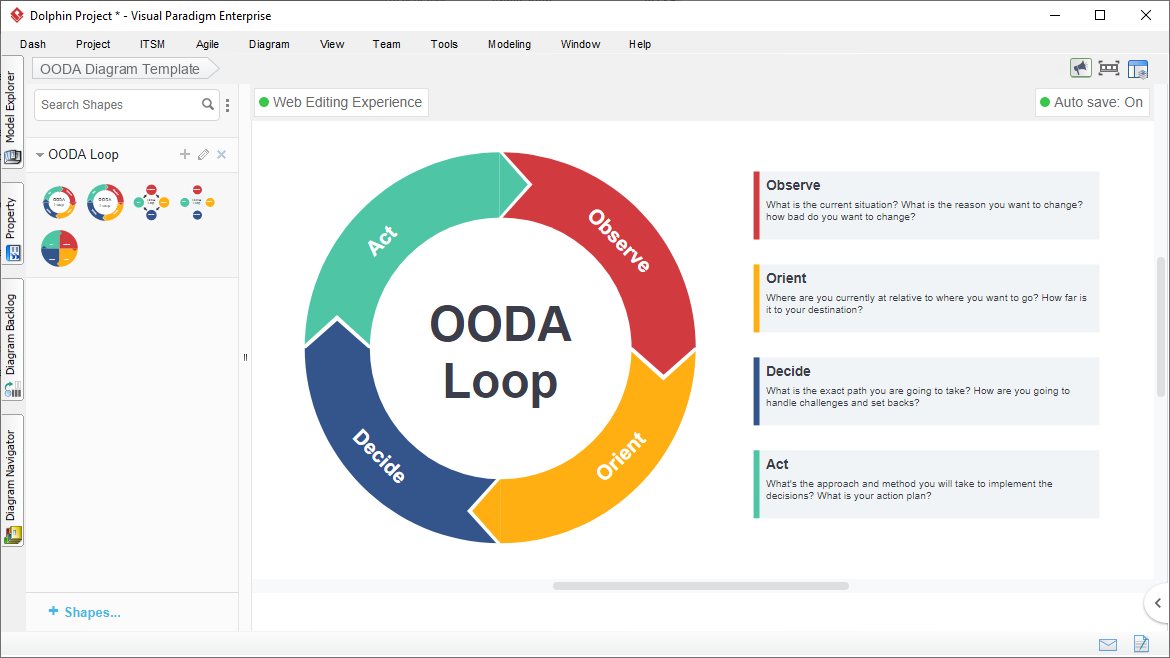Professionally developed OODA Loop templates

The OODA loop (Observe, Orient, Decide, Act) is a technique to decision making. It was developed by Colonel John Boyd. Although it's created for military purposes, the concept can be applied to business strategy. Visual Paradigm features an intuitive diagram editor and a rich set of OODA loop templates that support your strategic planning and presentation needs.
